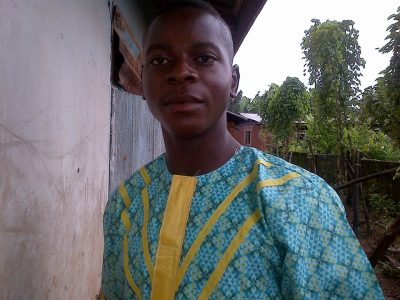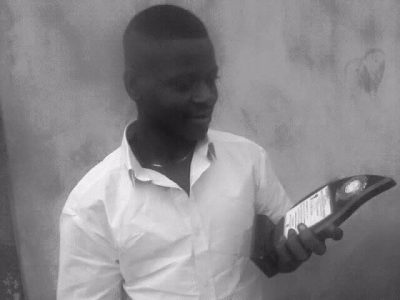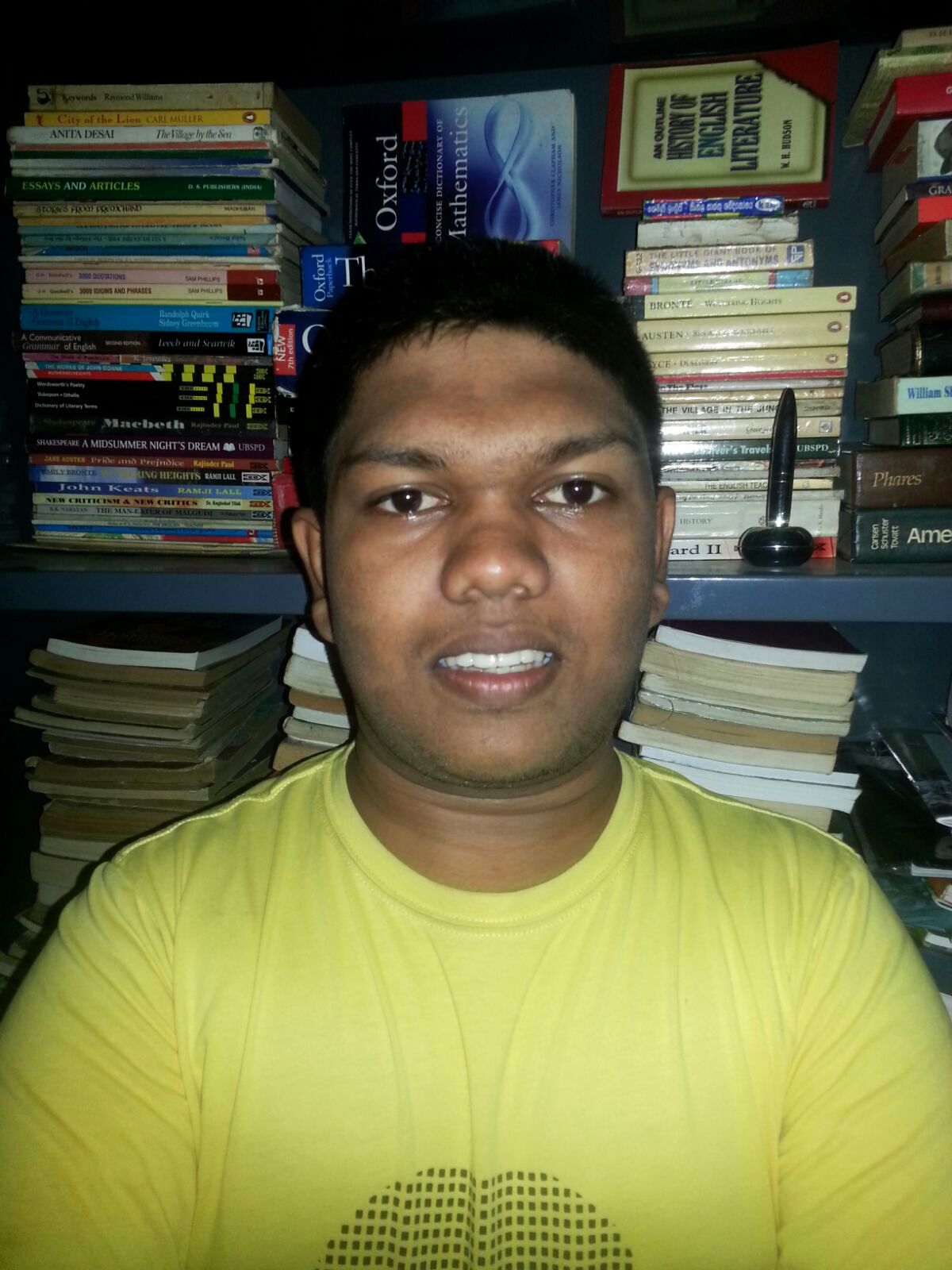By
Indunil Madhusankha
Oki Kehinde Julius is a renowned and prolific writer who hails from Okitipupa in Ondo-state, Nigeria. He is currently an undergraduate engineering student and a Christian by faith.
Okilux, by poetic name, is a spoken word artist who has won laurels in both spoken slam and page poetry. He won the award, The Most Influential Best Poet of The Year 2015 from the Paragon Poetry Contest. Also, in 2015, he was inducted into the Community of Thought and Society and was awarded the title of Writer II of the League. His works have been featured in both local, national and international magazines. He was shortlisted by the Black Pride Magazine among the top 30 page poets who rocked 2015, and was also commended by Tuck Magazine as one of its contributors who rocked 2015 with poetry and fiction. He is currently holding the positions of Writer 1/ Media Officer at Chrysolite Writers Team and Moderator of Literary Planet Poetry.
Indunil Madhusankha: How would you like to describe yourself in a few words?
Oki Kehinde Julius: I am Oki Kehinde Julius, a Nigerian writer and a brother to Jesus.
IM: I first went through your poem entitled, I Will Report 2015 to 2016 which recently appeared in Tuck Magazine. It is an authentic reflection of your acute remonstrating against some injustices that transpired during the year 2015. What do you think should be the role of a poet in building a world free from such injustices as the ones portrayed in this poem?
OKJ: I will Report 2015 to 2016 is a poem that was inspired by a nightmare. It warns 2016 never to walk through the way that 2015 took, and was written in the wake of the ugly insurgency and blood shedding that engulfs my nation, Nigeria. Every poet finds the pen as a sword to fight injustice. Even though a poet is not going to utter a word, his written work must be a strong protest against immorality. Poets are like clergy men preaching, and they are also like activists voicing for the voiceless.
IM: Also, I like the evocative and appealing imagery couched in the poems, Syndication featured in AsaPlaNET and Poorvertied that appears in the CWAN website. How do you get the inspiration to create such powerful mind pictures?
OKJ: Let me first start with Poorvertied. Our people are wallowing and swimming in the pool of abject poverty. Surviving means taking only one meal per day for some people. What are the causes, effects and solutions for these issues? All these are explored in the poem, Poorvertied. Then, Syndication is a poem that is gusting the basket never to play with the rain. It talks about human associations and why people must fraternize with other classes. I was inspired one day, when I saw a dog climbing a goat. Surprisingly, this made my pen bleed its ink for Syndication.
IM: Will you be able to name a few of your favourite pieces out of all the poems that you have written so far?
OKJ: All my poems are my favourite because I didn’t steal any. My best is yet to come, they are on their way coming. Among the ones that have already arrived are Where Are The gods, Poorvertied, Abobaku, Devil The Priest Of The Altar, Formal Nigeria, Fraternity, Keep The Pen Dancing, Ojelu and a host of others which are perhaps far better than all these.
IM: I am curious to know about your experience in your achievement of the award of The Most Influential Best Poet of the Year 2015 at a competition organized by the Paragon Poetry Contest and your subsequent induction into the Community of Thought and Society thus becoming the Writer II of the League.
OKJ: Winning the Paragon Poet Of The Year award in 2015 added another feather to my wings. I think that I am not the best among the contestants and I don’t even deserve the award. It was all God’s grace, that’s why I’ve dedicated the medal to Him. Community of Thought and Society had been watching me for long, I didn’t know. Sometimes when you’re doing something, you don’t know that people are watching you. It was in mid-September last year that I was messaged on my phone saying that they had finally made it known to the world that they had found me cleared of all conditions which were quintessential for induction into their league. At first, I thought it was a scammer, but to God be the glory, the truth prevailed and I was inducted into the community and awarded the title, the Writer II of the League.
IM: You are an undergraduate student involved in the field of engineering. As a student of science, what kind of a conflict do you observe between physical sciences and literary arts?
OKJ: Literature seems to be wrestling with physical sciences. Assemble 100 poets, and 75 out of them will be science students. I’m also one of them. Well, an engineering student remains an engineer, even if he/she is a god/goddess of poetry. Also, literature seems to have made many writers who are academically or professionally involved in the science field to regret their choice to be in science departments. This happens because literature is the mirror of life.
IM: Are there any poets or mentors who teach you how to write and influence your writing?
OKJ: Fat No! I don’t have a mentor in poetry. No one on earth teaches me how to write poems. I spent my secondary education days in the Chemistry laboratory. I don’t have a tutor or friend who influences me into poetry. It is a divine agenda, and surprisingly poetry was once what I hated the most among all other genres of literature. Even though I don’t have a mentor, I am happy that I have friends like Aremu Adebisi, Sam Ayoade, Deacon Adigun, Wale Ayinla, KIS, Veronica, George Shakesword, Graciano, Micheal Ace, Rex Mayor, Tukor, Solutionist, Enitan, Davydov and a lot of other budding poets all of whom cannot be mentioned here.
IM: How do you choose themes for your poems and what kinds of subject matters compel you the most?
OKJ: I choose themes for my poems according to the messages that I want to convey. I’m very careful with the themes that I choose for my pieces, because it is mostly the theme that cajoles the readers into going through my work. Also, I very much love to write poems dealing with protests and social criticisms.
IM: I have seen some writers having fanatical interests in their own religions? Are you also a religious extremist like that?
OKJ: Fat no! I hate fanatics. Despite the fact that I’m a Christian, I do tolerate other people’s religions, beliefs and views too. As proof, on January this year, I collaborated with a Muslim poet from India, namely Awwal Karrem and wrote a peaceful poem on the theme of religions titled, We Worship One God. The UN saw this, and they sent us an accolade. I’m a lover of different cultures and a friend of every religion. I hate fanatics. Because fanatics are no better than lunatics.
IM: As a student, how do you find the time for your literary career amidst many academic obligations?
OKJ: In spite of my tight academic schedule, I crave to find the time to write. I can write anywhere, even in the toilet. I do write in the classroom. Even during lectures, if the muse arrives, I begin to think before the lecture ends, and I put it down. Further, I do write even in the middle of the night, if inspiration happens to come. That’s why you will always find a paper and a book on my bed as my second pillow.
IM: Do you write regularly according to a plan, or is it just when the thoughts come to your mind?
OKJ: No! I don’t write regularly. A prophet does not prophesy every time. I work with inspiration and muse. I don’t write based on a special plan to meet an ultimatum. I write when a strange thought creeps into my heart. Writing poems and having them published every day will only make a poet lose his/ her value and his/her work will eventually become a common commodity. I don’t have joy in writing a huge numbers of poems. Even if it is just five poems, I can write them over the period of a whole month. My greatest joy is that my poems are able to convey a message that will correct our morally depleted society.
IM: I heard that you are currently working on your first book. Would you like to share something about that?
OKJ: Laugh! How did you know this? Actually there are two books, not one, namely Side of a Coin and Fraternity. The first one, Side Of A Coin is a book which tells the world that success cannot be attained only through education, but through hard work and perseverance as well. The other one, Fraternity is a book that warns the basket never to make friends with the rain because its perforated body is not capable of holding water. In a nutshell, this book deals with human associations. Let me stop here sir, my publisher is already staring at me.
IM: Some people say that rhyming poetry is a dying art. Do you agree with this statement?
OKJ: Rhyming poetry is not sick to the extent of dying. It depends on individual choice. Some people love free verse, while others love rhymes. As for me, seventy percent of my poems are rhymed ones. I love rhymed poems because they have a good musical effect when they are recited. Readers too love reading rhymed poems, because their recitals sound like rap music which is a very popular genre of entertainment. So, I think that rhyming poetry has not faced with extinction yet. It is still breathing.
IM: As you know, there are hundreds of literary e-zines and e-journals spread across the internet. What do you think about this new trend in the publishing industry as opposed to the traditional print form?
OKJ: I think that all the twenty first century writers need to give a big round of applause to the web publishing formats. If it not for them, how can our work go throughout the world? They’ve moulded many poets into shape, which includes me, the very person who is talking right now. I want to use this opportunity to appreciate all the big brains behind internet publications.
IM: Finally, what inspirational message would you like to convey to the budding writers as a well-received young poet?
OKJ: I would love to advise the emerging poets to keep their eyes on their own watch and never to imitate anyone. Do not imitate anybody for the best you get, because the moment you do that, you are just a number two. Criticism will come. Open your door for that. Jesus Christ too was not accepted by all. So, you should also know that, not everybody will love your work. You should keep on writing. Also, you should portray in your lifestyle, the messages and sermons that you need to preach through your poems. And, at the end of the day, your name will surely be written in gold.
IM: I would like to express my sincere gratitude to Oki Kehinde Julius for your valuable time and the interesting information shared. I wish you the best of luck for your writing career.
OKJ: I am indeed lifted up by this wonderful opportunity given to me. Even if this is not an award plaque, I know this is another feather added to my wings. A Big Thank You, Sir!
Previously published in the Scarlet Leaf Review and Parousia Christian Magazine.
Oki Kehinde Julis in Tuck Magazine



